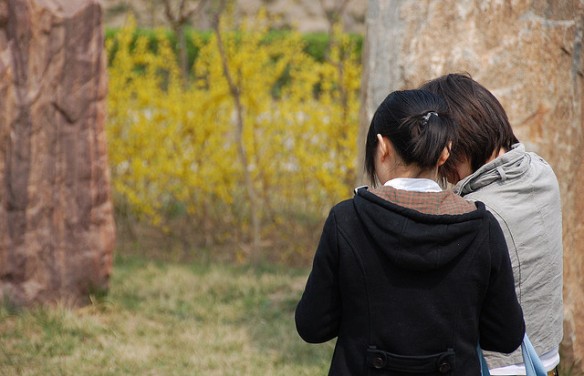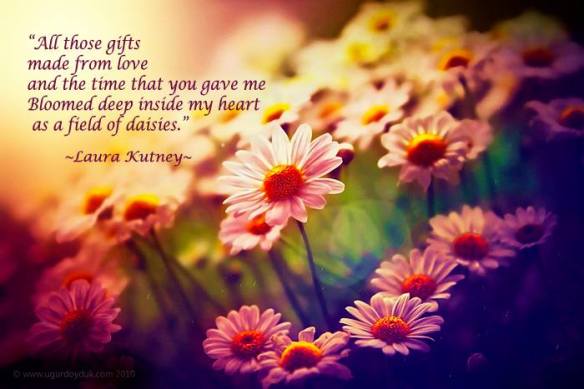
This is a bit of a sore spot, but part of life. Unfortunately, no one is immune. At least it was no one in my family and hopefully someone will be helped by something I have to say, even if it is to only recognize that they are not alone.
“Betrayal is the only truth that sticks.” ~ Arthur Miller
Change is good. I have said that aloud, myself and have even written about it. So, I am going to be grateful for this opportunity in this moment, for growth, even though I was betrayed in one of the worst ways that I have ever been to date.
So, “I have been betrayed.” There, I said it.
Out loud.
I am now left wondering how to skim the cream out of this curdled and stinky mess and learn from it while still honoring the part of me that was betrayed to the core of my possibly-too-open and too-trusting heart.
I am wondering if my title is reflective of what this article will be about, or if I am too wrapped up in my pain and hurt to offer an objective view on this topic.
And, I am wondering if that even matters.
Maybe this is what being raw is about. Raw can be good. Maybe this will help someone else. Maybe this will open me up as a person and as a writer, much like a fire does for a seed in the forest. Maybe this article is a risk worth taking. Perhaps, I will connect with a new audience.
Now, I am going to move forward, as I feel this is an important message, even if my wounds are fresh and I am still left licking at them. So—here I go! Please join me as I continue—as no one is immune to the unwelcome beast of betrayal.
Betrayal is an interesting concept once one gives it an honest and thorough think-over.
The main thing about betrayal that differs from other hurtful situations is that there is always a choice (usually moral) made by the party who betrayed you—and this is what makes betrayal so painful, in my opinion.
Yes, someone made a choice—either conscious (terrible, I know) or unconscious (also terrible) not to take your best interest into account when they betrayed you. Either way, you are left to feel the deep, cruel sting when your heart is carelessly handled by a person who you have placed your trust in.
I’ve come to the intriguing conclusion that one must care about the betrayer to be deeply hurt by them.
I suppose it could be called a light betrayal when one gives money to a stranger for food and then said person buys a beer. My guess is that this won’t be keeping anyone up at night in a state of hurt, confusion, or abandonment. No, one has to care about and trust the other person to be betrayed.
I have also come to believe that it is up to the person who has been betrayed to do the healing.
An apology from the person who has betrayed you is largely meaningless. If they had broken your favorite (insert material item of meaning) and apologized, that would make you feel better, right?
Not so with a betrayal, because guess what was broken? (Hint: it lives in your chest, beats 70ish times each minute and is affected by trust issues.) Yes—trust is the key word here. And trust does not, and probably should not rebound quickly. For me, it can take a long time to profoundly trust someone to begin with—and if that trust is tampered with, I am left to ponder these questions once again.

So, deep betrayal (is there any other kind?) happens when:
- You care about the betrayer.
- That person makes a choice to hurt you.
- The trust that you have invested is broken.
At this point, I think it is important to simply acknowledge that being betrayed sucks.
But, where is one to go from this point in order to heal?
This is challenging because you can’t look to the person who chose to break your trust.
I am early in this journey of healing, but I am going to try to take the take the advice I might give another:
- Understand that the betrayal was likely not personal even when it naturally feels that way. People who betray others are most likely misguided and probably motivated by unresolved issues in their own lives.
For instance, if someone says something confidential about you behind your back, then you are not the one with the problem. It is the other person who has something to work out within their life’s journey.
Because betrayal involves a decision, it is a purposeful act, i.e. there is some aspect of betrayal that was done on purpose. Betrayal can be motivated by countless reasons, but I think the seven deadly sins represent the basics of most betrayals—wrath, greed, sloth, pride, lust, envy, and gluttony.
2. It is not up to me to take care of the person in their regret, even if I still care about them.
This is a time for distance and reflection. I think betrayal is a signal that a relationship needs to be put on hold for a while so that it can be carefully evaluated.
3. Coming to grips with the fact that you had an elusive idea about who your betrayer was.
When one is betrayed, everything that they thought they knew about their betrayer is turned upside-down.
This is not a time to berate yourself for trusting someone that you were fooled by. Instead, remember that the person who you trusted is the one at fault.
Should you trust this person again? Not necessarily. This is dependent on too many factors to list, but there is a litmus test that I find a very good guide to follow, and that is one’s gut feeling about the situation.
There will be times to forgive and then there will be times to part ways, but your gut and your heart will tell you. Now is the time to listen carefully to your own intuition.
4. Give yourself time to grieve and don’t move on before you are ready.
Depending on the seriousness of the betrayal, there may be a significant grieving period that one needs to accept as real. And in any grieving process, there are steps that we progress through from shock all the way to acceptance.
Hopefully we are not often betrayed. But when one’s heart is open and willing to take risks and believe in others, it is bound to happen. Do we shut our hearts down and stop believing in others? I don’t think so.
Although we may want to recoil from people and life situations, I don’t think it is good to harden one’s heart and become wary of everyone.
Still, it is important to listen to what our hearts whisper (or scream) to us and to show our injured hearts a lot of extra love during the healing phase following a betrayal.
~
I am working all of the above out myself and I will keep you posted as I learn more on my journey.
With peace, love, while never waving a white flag of surrender (‘cause I’m a fighter), Laura.
If you would like to share:






